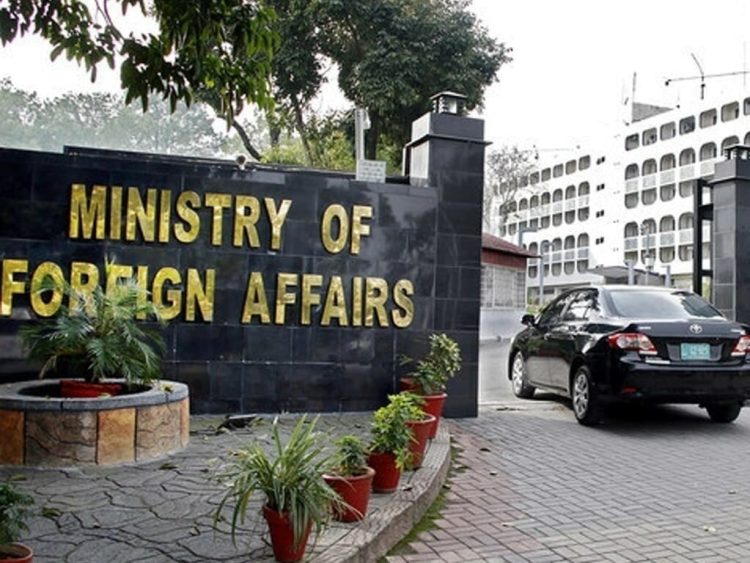Naveed Siddiqui
ISLAMABAD: The Foreign Office on Thursday reiterated that foreign policy is a federal matter, and any proposals from public figures will be considered by the federal government. This statement came in response to Khyber Pakhtunkhwa Chief Minister Ali Amin Gandapur’s announcement about sending a delegation to engage with the Taliban interim government to address terror incidents in the province.
During her weekly media briefing, Foreign Office spokesperson Mumtaz Zahra Baloch responded to media queries concerning the chief minister’s plan to hold talks with the Taliban regime in Kabul. She emphasized that foreign policy is the prerogative of the federal government, adding, “Any proposal from any public figure in Pakistan will be considered by the government of Pakistan, and decisions will be made in the national interest.”
She further clarified that Pakistani officials and nationals are free to visit any foreign country in a private capacity, and the government does not direct their private visits. However, regarding official engagements, Baloch said it was too early to comment. “When such proposals come before the Ministry of Foreign Affairs, only then can we respond.”
In response to Gandapur’s statement, Defence Minister Khawaja Asif termed it an “attack on the federation” during a session of the National Assembly, warning that the path taken by the Khyber Pakhtunkhwa leadership could have severe consequences for their party.
Addressing another issue, Baloch confirmed the recent clashes between Pakistan and Afghan security forces, stating that Pakistani posts were attacked from across the border on September 7. “Pakistani forces responded. Attacks across the international border are unacceptable, and Pakistan will continue to defend itself,” she said.
When asked about US Assistant Secretary of State Donald Lu’s ongoing visit to India and Bangladesh, which bypassed Pakistan, Baloch downplayed the matter, stating that Pakistan and the US have multiple communication channels and frequent diplomatic visits. She added, “These visits are determined by the priorities of both countries. Pakistan has no reason to comment on relations with third countries.”
Regarding reports that Indian Prime Minister Narendra Modi might skip the Heads of Government meeting of the Shanghai Cooperation Organisation (SCO) hosted by Pakistan in October, Baloch said no official communication had been received from India on the matter. She also highlighted the 23rd Conference of SCO Ministers of Trade held in Islamabad, attended by ministers or deputy-level officials from several member states, including Tajikistan, Uzbekistan, Belarus, Iran, Kyrgyzstan, India (virtually), Kazakhstan (virtually), China, and Russia.
On recent remarks by Indian Defence Minister Rajnath Singh about Kashmir, Baloch reaffirmed Pakistan’s commitment to supporting the rights of the Kashmiri people. “Kashmiris are our brothers and sisters, and India’s claim of considering Kashmiris as its own rings hollow in light of the decades-long suppression of the Kashmiri people,” she said.
Responding to questions about trade ties with China, the spokesperson expressed optimism about enhancing bilateral trade, particularly in agriculture, noting positive recent trends. “Pakistan and China are committed to further strengthening trade and economic relations,” she added.
On the Taliban government’s spokesperson Zabihullah Mujahid’s statement about progress on the TAPI gas pipeline project, Baloch reiterated Pakistan’s commitment to the project, calling it important for the country’s energy security. She noted that recent developments were under evaluation by relevant departments.
Commenting on the Australian government’s request regarding Hasan Askari’s removal from the Exit Control List (ECL), Baloch stated that the decision lies with Pakistan’s Ministry of Interior.
The spokesperson also condemned Israeli attacks in Syria, labeling them as blatant aggression and a violation of international law. “Pakistan considers these attacks a dangerous provocation and calls on the international community to prevent Israel’s adventurism, which endangers regional security,” she added.

















